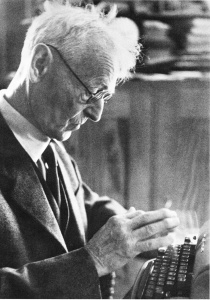LENNY BRUCE
The film Lenny (1974) was in my opinion one of Dustin Hoffman’s best performances. But more than the performance was Bruce’s brutal honesty about American attitudes about censorship. And, again in my view, he (Bruce) was not just ahead of his time, he touched a nerve that Americans still treat gingerly and with great hesitation.
Intolerance, bigotry, racism, and above all sexual obsession form the real foundation of this nation. You might say it’s the mossy underside of that foundation – the secular “thou shalt nots” underlying all the Constitutional “liberties” shining like white marble in the sunshine. Bruce addressed the former in its appropriate setting – cavernous nightclubs and bars below street level. How fitting.
In the 1974 film, Bruce, in what turns out to be a “contempt of court” ruling, pleas with the judge that “you need a deviate!” How true that was. A Judas Goat might be another term for it – without which the hard wall of censorship could not exist. You need a background of darkness against which to contrast a foreground of light. Knowing this, Bruce not very willingly volunteered himself.
The court of course saw the whole thing differently. It had no concept of, or time for, what he was saying. The ruling was as ruthlessly medieval as that of the Holy Inquisition – more like the 13th century Cistercian abbot, Arnaud-Amalric, who in the Albigensian Crusade’s “killing for Christ,” ordered the execution of everyone in the Spanish village of Beziers. Reasoning that everyone (by association) was automatically evil, he questioned the need to then even ferret out the “still faithful.” After all, God would sort out the good from the bad for himself. “Kill them all,” he said. “God will recognize his own.”
Bruce’s whole thesis centered around the problem of systemic suppression. He said it was the suppression of the thought, the word, the idea, that gave them their power, ugliness, and viciousness. It’s what created and kept alive the porn industry, what made “deviates” deviate, and ironically (admitting) what kept his own career going.
The remarkable thing about this was the “underside” to what was being roundly ignored – the judge’s own mind. He knew this all too well, and Bruce knew that he knew. Bruce also knew that the judge had to respond to the collective attitudes around morality, social order and restraint. In other words, the judge had no choice but to see himself as a hero of moral virtue by equating goodness with the suppression of deeper truths. This had to be part of God’s will, fearing the collapse of everything otherwise – even if it meant the burning of witches and heretics.
Bruce was the first to yell out “nigger, nigger, nigger, nigger!!!” in his nightclub act – vis-a-vis a Black man – and then a White man. And then he waited. There was only silence in the room, a room designed for raucous laughter. The silence was audible, piercing, and stressful. Then Bruce shattered it by shouting every slur ever invented for every race and ethnicity – Latinos, Asians, Native Americans, Christians, Jews, Muslims, atheists, and everyone in between. And he made his point. The “silence” was that very same “crack” our society has found itself stuck in for generations, even since the Civil Rights movement (long after Bruce’s death) – not knowing how to defuse a simple word. It’s our dilemma still today.
Being out on parole with a legal warning to “clean up his act,” Bruce then found himself in a comedy club the very next night, forced to confront the same moral dilemma. The room was lined with police officers watching, waiting, taking notes, wearing expressions of contempt and hatred. It came down to telling the truth – or – complying and hiding behind layers of hypocrisy which he not only hated but saw as an even worse moral offense.
So, Bruce does his usual act, about body parts and the sexual act, but replaces otherwise “offensive” terms with the infantal lallations “bla, bla, bla.” “Have you ever had your bla “bla-blad?” – and so on. It elicited tremendous laughter because of the absurdity placed on the entire situation. Not unlike the laughter we enjoy when seeing someone slip on a banana peel – “comedy from tragedy” at someone else’s expense – we were now laughing at ourselves at our own expense, and shaking our heads at our own tragic dilemma. By the end of the performance, Bruce announces, “this is the filthiest show I’ve ever done.” “Covering up” was worse than fucking in public.
Bruce was immediately arrested again. He fired his legal council because they insisted on a plea deal, thinking it was the best they could do. He wanted to represent himself but the court ruled that he find suitable council again before proceeding. He went home, did drugs, overdosed, and died. – Another crusader for human honesty who grappled with a profound intolerance for the truth. His agenda wasn’t to tear down and destroy what is good, but to elevate the good to a more enlightened place. Like Oscar Wilde who lived tragically a century “too early” in a time and place incapable of handling homosexuality, Bruce was scapegoated, condemned, and by the universal irony of transmutation – martyred.
Bruce was a flawed and imperfect martyr – as most are. We might say an “accidental martyr.” Most never consciously want to grapple with the forces against them but find themselves in a corner anyway and stuck with an inner passion. Something inside ignites and refuses to compromise what is “right.” There’s a fierce indignation that takes over the personality almost to the point of a split-personality. This, to me, is what defines integrity – “soundness, incorruptibility”; also dignity “a state of worthiness.”
Alas, such passion is something only some people are born with. It is rarely, if ever, learned. It’s an obsession fomenting from DNA to make things right again. And it has nothing to do with the fact that he may be a convict, pervert, slacker, ne’er-do-well, or a “bum” in other contexts. One has nothing to do with the other. It’s the same paradox we witness all the time with so-called “heroes” in our midst (military, spiritual, civic), who could very well be degenerates and deviates in private.
Bruce’s martyrdom is solidified because his film-bio is seen over and over today, and that’s because he’s still relevant today. We may have grown out of some of the stupidity our parents and grandparents defended, but the taboos symptomatic of control and intolerance are just as palpable today. We might say they’ve just shifted to another place, to another level in our collective consciousness. Racism and bigotry have not shifted, though sexual attitudes have shifted and have even evolved somewhat. But what remains is the fear of what would happen should the barriers of intolerance and hatred (towards anything) be removed. We simply must have something dark to push against lest the angels light all become “dark angels.”
In other words, if alive today Lenny would still be a “deviate.” His views still repel normative views enough that a comedian’s career based on those same issues would still be controversial. The late George Carlin was perhaps the last of this breed that hammered home the need to shake up our sensibilities around censorship, bigotry, intolerance, and cultural hypocrisy. This fact should alarm us all and show that indeed nothing really changes in a culture’s DNA. Donald Trump proves this point every single day.
They say the martyr is the “most lonely and isolated” human soul. But he also has great determination, passion, and stubbornness which keeps him close to many others like himself or those who embrace his views. There is also the debate on whether the martyr derives a certain pleasure or profit from his actions – not driven so much by some greater good but “over-developed self-esteem.” Then a third argument is whether he wishes to secure a place in “the beyond” for himself, hence not working as much for a cause as for himself. – Bruce was ostentatious, brash, and often arrogant – all the necessary traits of a stand-up comedian – but I personally think he fit none of these categories. He was, again, an “accidental” (even an unwilling) martyr. He derived no pleasure in getting arrested numerous times, he was a devout (Jewish) atheist, and he was, despite his many intimate contacts, marriage and family, probably the loneliest and most isolated individual of all.
Hence, the fourth debate: whether the martyr’s passion to change things is locked in his DNA, like a spark which is going to ignite regardless of what happens – or – if it is the knee-jerk reaction to a specific cultural conflict or political crisis. With Bruce it was the latter. He was admittedly DNA-predisposed to a life of high passion and political intrigue, but his politics only ignited when the law literally invaded his space and arrested him for “obscenity.” You might say it was the system that promoted Bruce to “monstrous or divine” martyrdom – depending on what side of the ideological divide you were on.
This was Bruce’s message, and indeed it martyred him: “You need a deviate!!” And his greater message was that needing him in that role was not just about a symbol in a sick society but a way for society to see itself in the mirror, to find a compass bearing out of its suffering. Again, like Wilde, he was too far ahead of his time.
Which brings up another question: Is anyone who brings up a new unorthodox idea necessarily always “ahead of his time?” Is the newness, the novelty, of an idea the litmus test of unacceptability? Is it the crossing of grains, the challenging of ideas, which automatically places him in a future context because he challenges “the present?” The definition of creativity is “bringing something new into being.” To be creative is to be ahead of what is no longer “creative.” (The same paradox applies to liberalism: to achieve acceptance means it’s no longer liberal). Without creativity there simply is no forward movement. The world stops spinning and everything dies.
As an aside to this, what conservatives constantly grapple with is that every new idea that comes along, which they finally accept, is initially a “liberal” one. They whine and scream and condemn it for as long as they can, like lost children afraid of the dark – until one day it’s “okay.” Then they turn around, take credit for it, and whine, scream, and condemn all over again over the next “liberal” idea happening along. It’s like trying to coax a child out of a closet fearing the sunlight.
Bruce was just one of those doorstops that kept a door slightly ajar, a door that those inside wanted to constantly slam shut and keep locked. And he suffered for it – as doorstops do.
© 2019 Richard Hiatt

 moose hunters find his body. Later that year his sister carries his ashes home in her backpack. – The movie is based on his journal meticulously kept throughout his travels.
moose hunters find his body. Later that year his sister carries his ashes home in her backpack. – The movie is based on his journal meticulously kept throughout his travels.  catch me up in one of those things.” We find ourselves saying it over and over while simultaneously inching our way to the precipice. The butterfly says nothing back, and neither did Christopher McCandless. He simply left. I think we all simply want to leave.
catch me up in one of those things.” We find ourselves saying it over and over while simultaneously inching our way to the precipice. The butterfly says nothing back, and neither did Christopher McCandless. He simply left. I think we all simply want to leave.  a ride on an old tanker to Castalia.
a ride on an old tanker to Castalia.  observation of how we all (as young children) look into the mirror for the first time. Prior to this pivotal moment we experience ourselves as an almost infinite universe of feelings, thoughts, sensations and intuitions (borrowing again from the “four psychic functions” in analytical psychology). We are quite literally not beings but eternal
observation of how we all (as young children) look into the mirror for the first time. Prior to this pivotal moment we experience ourselves as an almost infinite universe of feelings, thoughts, sensations and intuitions (borrowing again from the “four psychic functions” in analytical psychology). We are quite literally not beings but eternal